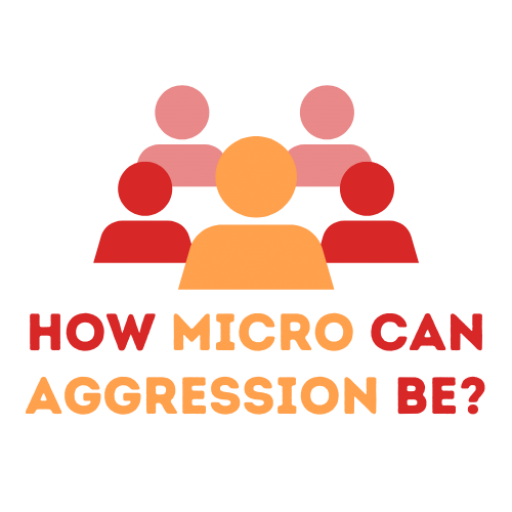Step 1: Introduction
A small group of 6 people (at most) is preferred, because this training might make people feel defensive. The group is seated around a table or in a circle facing each other in a quiet and closed-off area. Then the facilitator sets the ground rules for the training, explains what micro-aggressions are, informs the participants of the objective of this training, then gives directions about the exercise (5 minutes).
An example introduction:
Before we get started, I would like to set some ground rules so we can all engage in open and productive dialogue with each other where everyone feels supported and respected.
- Be reflective. Consider the impact of your words, and how they might affect your peers.
- Take turns, allow everyone a moment to speak, and try not to disrupt others.
- Express disagreement in a respectful manner (do not attack the person, discuss the ideas).
- Stay open and kind to yourself and others, try to avoid defensive behavior.
- This is a safe and no-judgment space.
- The facilitator will intervene when unproductive behavior is shown.
Do you have a suggestion for additional rules that can promote open and productive discussion?
Micro-aggressions are common, casual and/or subtle verbal, behavioral, or environmental acts, whether intentional or unintentional, that convey hostile, derogatory, or negative attitudes towards individuals based on the marginalized or underrepresented social identity they belong to. Micro-aggressions can take many forms, including but not limited to:
- assumptions based on stereotypes
- exclusion or invalidation of a person’s experience or identity
- backhanded compliments
- discriminatory jokes or remarks
- nonverbal cues, such as avoiding eye contact or interrupting someone
The aim of this exercise is to make you aware that everyone is capable of micro-aggressions and help recognize what kind of behavior you have performed so far. This is not a judgment. We all have participated in micro-aggressive behavior one way or another, because micro-aggressions are so ingrained in our society. This exercise is about turning inward and gaining new insights.
We will do this through a short round of Never Have I Ever…?
The exercise is easy to do: You pick a card, you read aloud what the card says, and everyone raises their hand if they have done what is said aloud. Then the next person picks a card, and we repeat the process until we have run out of all the cards. After that, there is a moment of reflection and a brainstorm on how to prevent micro-aggressions and promote inclusivity. We will not be keeping score during the exercise; we will not be judging. Instead, open discussion and (self)reflection are highly encouraged.
Why a card game exercise? We wanted to keep it informal, because it is difficult to admit you might have unintentionally hurt or offended someone by having committed a micro-aggression. Like I have said, this is not about placing blame or making people feel bad.
If you notice that you are uncomfortable with this exercise, then you have the option to say no as a group. I would like to give you the space to discuss whether you want to participate in this exercise. If the answer is no, we can discuss our discomfort and where it stems from, so that we are at least examining that and gaining a bit of awareness of ourselves.
